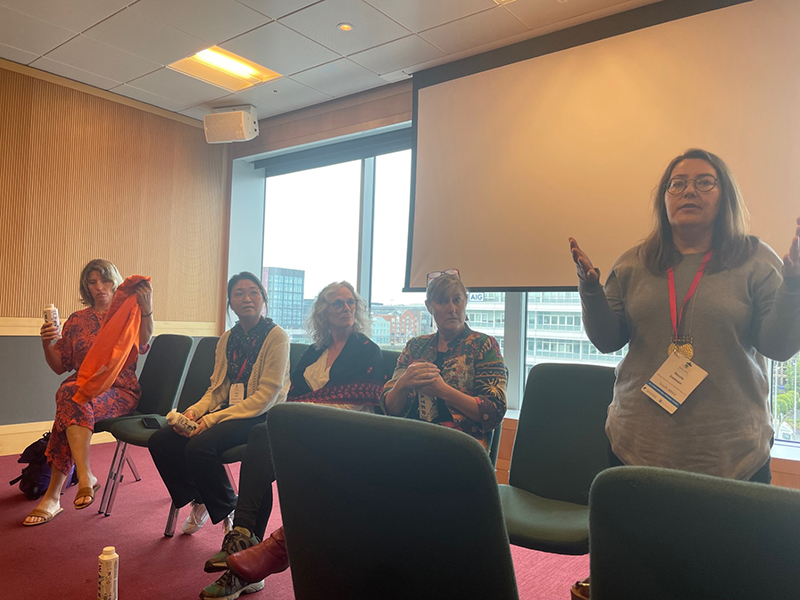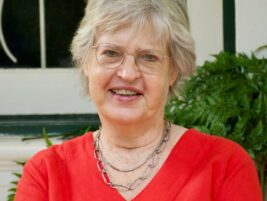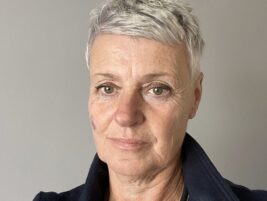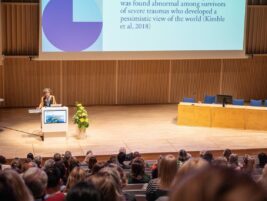There is a growing awareness that “well-established”, extensively researched and published healthy parenting practices only represent a small fraction of the global variation in good-enough caregiving. As a congress attendee, it was clear that regions which house the largest sources of funding will continue to generate the largest body of knowledge, promoting a particular “gold standard” of key ideas that have come to define the field of infant mental health intervention, policy, practise and research.
A key theme of the WAIMH 2023 congress proceedings included an attempt at shifting the focus from primarily Western, Educated, Industrialised, Rich and Democratic (WEIRD) idealization of infancy to include diverse racial, cultural and collectivist perspectives into mainstream sources of knowledge. A symposium entitled “Parenting in Cultural Context” included five presentations from across the globe challenging “gold-standard” approaches to infant mental health theory and practice and provided evidence for variations which benefit infants and their caregivers.
Dr Tracy Vozar (Children’s National Hospital/GWU) shared a presentation entitled “Nosotros Jugamos: a cultural and language sensitive caregiver-led parent-child group” which showcased a facilitated play, support and evidence-based programme with mental health components for caregivers and young children. The programme has been adapted from WePlayDenver but is held exclusively in Spanish and targets the needs of Spanish-speaking caregivers. Culture-specific core values and stressors are accounted for by this model, reducing acculturative stress of the LatinX community in Colorado, US, promoting mental well-being and supporting caregiving practises and normative child development.
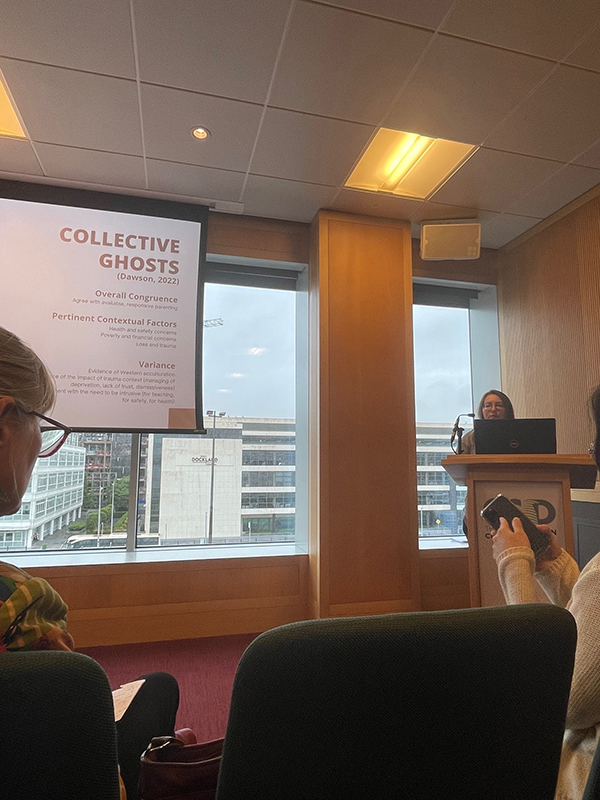
Dr Nicki Dawson (Ububele Educational and Psychotherapy Trust) presented her research on “An Exploration of Maternal Sensitivity, Culture and Context in a South African Township”. Her study aimed to research the applicability of the construct of maternal sensitivity in a South African context using both qualitative interviews and interactional video material. The findings revealed that divergences with more recent Western-developed operationalization of maternal sensitivity were found in the areas of warmth, verbal responsiveness and facilitated learning.
The third presentation included work from Dr Yujin Lee (University of York) whose presentation entitled “Cultural Differences and determinants of Parental Reflective Functioning between the UK and South Korea” sought to highlight culturally different determinants of parental reflective functioning. Her findings concluded that although mothers’ genuine interest about their infants’ minds would be universal, mothers’ focus on their parental mentalizing and their determinants are culturally dependent on parenting beliefs. Her research highlighted the emphasis on “oneness” between mother and child. Prof Fiona Ross (University of Cape Town) presented on a current research project “A second order witness: observing infant observers in South Africa” in which an anthropologist attends weekly online Tavistock-informed infant observation seminars for two years. The presentation highlighted the need for careful reflection on the experience of being an observer in the context of which family shape and function are complicated by histories of racism, dispossession, illness, inequality, mobility and local models of personhood. Concerns have been raised about the objectifying capacity of the model, thereby challenging its relevance and applicability in its current shape and form in the South African context.
The final presentation of the symposium by Dr Deborah Young (Empowering Communities Globally) highlighted “Support systems for well-being of young children and families: The case of Palestine” in which cultural adaptations of the Crowell and Feldman procedural caregiver-child relationships assessment tool were used to provide interventions to families. Young’s work suggests that the mental well-being of parent and child is closely related to the unpredictability of the impact of contextual factors and therefore adaptations in tools are essential for the relevance of its use.
The symposium concluded with stimulating discussion from the audience who engaged with larger ethical questions around the access to knowledge which captures the wider world view of parenting practises and the applicability and relevance of models that are imposed without the necessary cultural and contextual adaptations. The need for further reflection on a decolonized approach to healthy infant mental health outcomes featured as a core theme of the discussion.
Authors
Salisha Maharaj,
Perspectives IMH Assistant Editor,
South Africa


